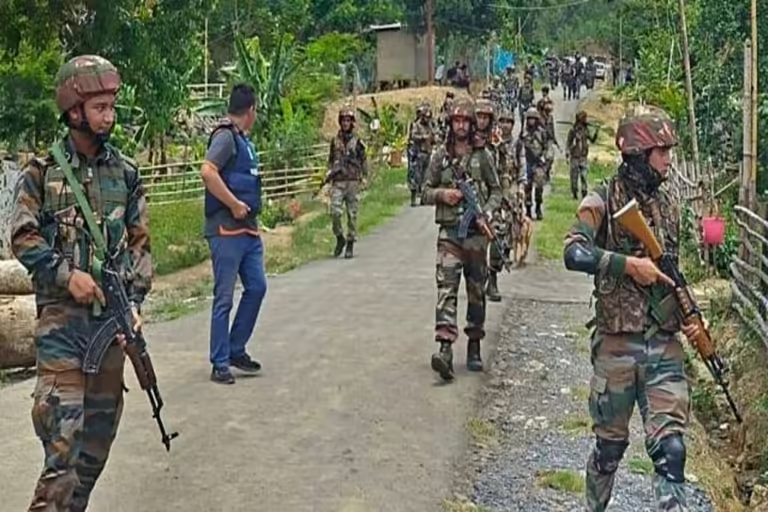Manipur Naga Bandh from October 3 Midnight: A Regional Uproar
Summary of the News
The Naga community in Manipur has announced a bandh starting from midnight on October 3. This strike is being organized by the United Naga Council (UNC) in protest against the non-fulfillment of longstanding demands regarding political and administrative autonomy for the Naga people. As tensions rise, the bandh is expected to impact daily life across the Naga-inhabited areas of Manipur.
Understanding the Reasons Behind the Manipur Naga Bandh
What Sparked the Bandh?
Manipur, a state in India’s Northeast, is often at the center of political and ethnic tensions. This time, the Naga community, under the leadership of the United Naga Council (UNC), has called for a bandh or strike from October 3 midnight. But why now? What are the reasons behind this action?
The UNC has made it clear that the bandh is a result of frustration over the lack of progress in meeting the political and administrative demands of the Naga people in Manipur. The key issue here is the autonomy that the Naga community has been demanding for years. Despite multiple talks and promises from the government, the Naga people feel that their aspirations for self-governance have not been realized, which has pushed them to organize this bandh.
The Long-Standing Political Demands
The Naga people have long been fighting for greater political and administrative autonomy. The demand for a separate Naga administrative unit or integration of Naga-inhabited areas has been a recurring issue in Manipur’s political landscape. This demand stems from the fact that the Naga people want to have a say in how their areas are governed, culturally, politically, and economically.
The failure of successive governments to address this demand has led to a sense of alienation and neglect among the Naga community in Manipur. They feel that their voices are not being heard and that their unique cultural identity is being overlooked in the larger political narrative of the state. This has created a simmering tension that often manifests in strikes and protests like the one currently underway.
The Role of the United Naga Council (UNC)
UNC’s Influence in Naga Politics
The United Naga Council (UNC) plays a crucial role in Naga politics, especially in Manipur. As the representative body of the Naga people in the state, the UNC is often the driving force behind protests and strikes aimed at securing the political rights of the Naga community. The current bandh is no different, with the UNC leading the charge in demanding that the government meet their long-standing demands.
The UNC’s influence extends beyond just organizing protests. It also acts as a bridge between the Naga people and the government, engaging in dialogue and negotiations on behalf of the community. However, with little progress being made in recent years, the UNC’s patience appears to be wearing thin, leading to the decision to call for a bandh.
Previous Bandhs and Their Impact
This is not the first time that the UNC has called for a bandh in Manipur. Over the years, the Naga community, under the leadership of the UNC, has resorted to strikes and protests as a way to make their voices heard. These bandhs have often led to disruptions in daily life, with businesses shutting down, transportation coming to a halt, and schools and offices closing.
The impact of these bandhs is felt not just in the Naga-inhabited areas but across the state of Manipur. The current bandh is expected to be no different, with the UNC calling for widespread participation from the Naga community. The question now is whether this bandh will lead to any meaningful change or if it will be another chapter in the ongoing struggle for Naga autonomy.
The Broader Impact of the Naga Bandh on Manipur’s Economy and Society
Economic Disruptions
Bandhs, while an effective tool for protest, often come at a significant economic cost. The Naga bandh, which is expected to last for an indefinite period, will undoubtedly have a major impact on Manipur’s economy. Businesses will be forced to close, transportation will be halted, and the movement of goods will be disrupted.
For a state like Manipur, where many people rely on daily wages for their livelihood, the bandh will be especially difficult. Farmers, traders, and small business owners will bear the brunt of the strike, as they lose out on income while the bandh is in effect. Moreover, the bandh could also lead to shortages of essential goods in Naga-inhabited areas, further exacerbating the economic challenges faced by the community.
Social Consequences
Beyond the economic impact, the bandh will also have social consequences. Tensions between different ethnic groups in Manipur could rise as a result of the strike, leading to potential conflicts. The bandh is likely to create a sense of unease and uncertainty in the state, as people wait to see how long it will last and what impact it will have on the political situation.
For the Naga community, the bandh represents an important moment in their ongoing struggle for political autonomy. However, it also comes with risks, as prolonged strikes can strain relationships with other communities in the state. The longer the bandh lasts, the more likely it is that tensions will rise, creating a volatile situation in an already fragile political environment.
Government’s Response to the Naga Bandh
What Has the State Government Done So Far?
As the Naga bandh approaches, the question on everyone’s mind is: what is the government doing to address the situation? So far, there has been little in the way of concrete action from the state government. While there have been statements urging for calm and dialogue, the government has yet to take any significant steps to meet the demands of the Naga community.
This lack of action is not new. The government has been slow to respond to the demands of the Naga people for years, which has only fueled the frustration and anger that led to the current bandh. The Naga community feels that their concerns are not being taken seriously, and the government’s inaction has only reinforced this belief.
Will the Government Step In?
The big question now is whether the state or central government will step in to address the demands of the Naga people. The bandh is likely to put pressure on the government to take action, but whether that action will be meaningful remains to be seen. The Naga community is calling for more than just temporary solutions – they want long-term political and administrative changes that will give them greater control over their own affairs.
If the government does not take steps to address these demands, the bandh could continue for an extended period, leading to further disruptions and tensions in the state. On the other hand, if the government is able to engage in meaningful dialogue with the UNC and the Naga people, there is a chance that the bandh could lead to positive change.
The Future of Naga Politics in Manipur
A Turning Point for the Naga Community?
The Naga bandh could be a turning point in the ongoing struggle for political autonomy in Manipur. The Naga people have long felt marginalized and neglected by the government, and the bandh represents a bold statement of their determination to secure their rights. Whether or not this bandh leads to meaningful change will depend on how the government responds.
The UNC has made it clear that they will not back down until their demands are met. This means that the future of Naga politics in Manipur could be shaped by the outcome of the current bandh. If the government is willing to engage in dialogue and take steps to meet the demands of the Naga people, it could lead to a new era of political cooperation in the state.
The Role of Dialogue in Preventing Future Bandhs
One of the key lessons that the government can take away from the current bandh is the importance of dialogue. If the government had engaged in meaningful discussions with the UNC earlier, it is possible that the bandh could have been avoided. Moving forward, it will be crucial for the government to maintain open lines of communication with the Naga community in order to prevent future strikes.
By addressing the concerns of the Naga people through dialogue and negotiation, the government can create a more stable political environment in Manipur. This will not only benefit the Naga community but also the state as a whole, as it will reduce the likelihood of future bandhs and protests.
FAQs
- What is the main reason behind the Naga bandh in Manipur?
The bandh is being organized in protest of the government’s failure to meet the political and administrative demands of the Naga community. - How will the bandh affect daily life in Manipur?
The bandh is expected to disrupt daily life, with businesses, transportation, and schools closing in the Naga-inhabited areas of the state. - What role does the United Naga Council (UNC) play in the bandh?
The UNC is the main organizing body behind the bandh and is advocating for the political rights of the Naga people in Manipur. - Has the government responded to the bandh?
The government has yet to take significant action, though there have been calls for dialogue and calm. - What are the likely outcomes of the bandh?
The outcome remains uncertain, but it could lead to government action or prolonged unrest, depending on how the situation unfolds.

